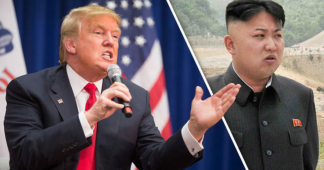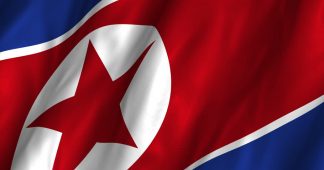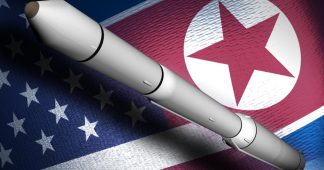By
North Korea has accused U.S. military and environmental policies of causing climate change and producing pollution around the world.
In a scathing report cited Friday by North Korea’s official Korean Central News Agency (KCNA), the state-run Institute for International Studies of the DPRK (an acronym for the country’s official title: the People’s Democratic Republic of Korea), asserted that the U.S.’s use of nuclear weapons, involvement in foreign conflicts and style of production had most harmed the environment since the Cold War. The study, attributed to researcher Kim Kum Hui and titled “The U.S. Is Chiefly to Blame for Global Environmental Pollution,” advised the U.S. to change course and safeguard the environment.
“All facts clearly show that the U.S. is not only a ringleader which spawned global warming threatening the human existence and future of the earth but the enemy of mankind driving into an irretrievably catastrophic consequences by disturbing even the worldwide efforts to prevent it,” the article read.”If the U.S. continues swimming against the trend of the times protecting the global environment, it will not escape from the stern judgment of mankind,” the piece added.
North Korea’s report claimed that since the Cold War, the U.S. has forced other nations to adopt its model of “American-style development” under the guise of economic globalization. It said the U.S. alone accounted for 22.1 percent of the world’s carbon emissions in 2004. The figure appears to relatively coincide with conclusions established the following year by Washington-based think tank the World Research Institute. Research by the same organization says the U.S. contributed 14.4 percent in 2012, second only to China’s 25.36 percent. That same year, North Korea, an underdeveloped nation of around 25 million, was listed at .17 percent.
The report also laid into the military practices of the U.S., with which North Korea fought a war in the 1950s. The piece condemned the U.S.’s dropping of atomic bombs on the Japanese cities of Hiroshima and Nagasaki at the end of World War Two in 1945, as well as the government’s nuclear tests, which numbered 1,054 between 1945 and 1992, according to the Department of Energy.
North Korea began its own nuclear weapons program under the leadership of the nation’s late founder, Kim Il Sung. His son, Kim Jong Il, oversaw the country’s first nuclear weapons test in 2006. Since then, the nation has conducted four more, three of which have occurred under current leader Kim Jong Un, the third generation of his family to take power of the reclusive, militarized state. The young ruler, who became head of state after his father’s death in 2011, has repeatedly argued that nuclear weapons are necessary to defend North Korea from foreign invaders such as the U.S.
The institute concluded that the U.S.’s nuclear weapons policy, along with the alleged use of “bio-chemical warfare” during the Korean War and other conflicts since in Asia and the Middle East meant the Earth was in “danger of being reduced to a desert hit by radioactive pollution.” The U.S. maintains a stockpile of around 6,970 nuclear weapons, the second-largest after Russia’s approximately 7,300. North Korea, which abandoned the U.N.’s nuclear non-proliferation treaty in 2003, is believed to have produced up to 20 nuclear warheads. President Donald Trump has threatened to prevent Pyongyang from pursuing a sixth nuclear test by military force, contributing to heightened tensions in the Asia-Pacific region.
Despite North Korea’s traditionally dismissive nature toward international treaties, Pyongyang has at times been a vocal advocate of global cooperation on environmental issues. It signed the 2015 Paris Climate Agreement, which is geared toward reducing global greenhouse gas emissions, and deeply criticized Trump for pledging to withdraw from the non-binding, landmark treaty last week. North Korea has suffered from a number of deadly famines and floods that experts and international agencies have said indicate its vulnerability to climate change.











